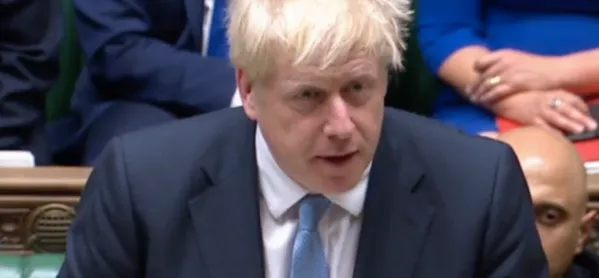Almost all schools serving the most disadvantaged communities will miss out on extra money under Boris Johnson’s pledge to "level up" school funding, new research has found.
But grammar schools and those serving affluent areas stand to gain the most, analysis has concluded.
The prime minister has promised to increase the minimum per pupil funding for primary schools from £3,500 to £4,000, and for secondary schools from £4,800 to £5,000.
However, analysis published by the Education Policy Institute (EPI) today has found that the pledge would cost more than double what Mr Johnson said, and benefit schools with less challenging intakes the most.
Boris Johnson: Pension and SEND costs could eat into PM's £4.6 billion
Quick read: PM 'must honour funding pledge'
Protest: Heads to march for school funding out of 'desperation'
Opinion: Why equal funding doesn't mean equal opportunity
EPI’s deputy head of research Jon Andrews said: “The prime minister’s drive to level up school funding implies that funding should be equal despite the fact that children’s circumstances and opportunities are anything but.
“This approach would disproportionately direct additional funding towards the least disadvantaged schools with the least challenging intakes at a time when progress in closing the attainment gap has stalled and may be about to go into reverse.”
The analysis finds:
- The pledge would cost around £590 million for primaries and £150 million for secondaries, compared with the £306 million and £50 million respectively estimated by Mr Johnson’s leadership campaign.
- Schools that benefit the most would be those with low levels of disadvantaged pupils, serving affluent communities, without large numbers of pupils with low prior attainment and with few pupils for whom English is not their first language.
- Almost all schools that serve the most disadvantaged communities would miss out on additional funding, while primaries with the least disadvantaged intakes (less than 5 per cent eligible for free school meals) would see an average increase of £271 per pupil.
- 151 of England’s 163 grammar schools would benefit under the proposal, with an average increase in school budgets of over £130,000.
Angela Rayner, Labour’s shadow education secretary, said: “Schools across England have been hit by years of Tory cuts and need investment to give every child the best possible start in life, not just a lucky few. The last prime minister failed to end austerity and it’s clear the new one won’t do any better.
"The next Labour government will invest in every school, with a genuinely fair funding formula that allows every child to flourish in education.”
Mr Johnson has also pledged to increase school funding by £4.6 billion a year by 2022-23.
A DfE spokesperson said: “The prime minister has made clear that we will increase minimum levels of per pupil funding in primary and secondary schools and return education funding to previous levels.
“We will be announcing more details in due course and, until then, any assumptions are purely speculative.”




